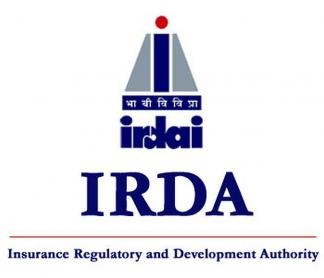The total quantum of the instruments under other forms of capital taken together has to be lower of the following, at any point in time: 50 percent of the total paid up equity share capital and securities premium of an insurer and 50 percent of the net worth of the insurer.
To exclude long term bonds issued by Banks for financing ‘Infrastructure and Affordable Housing’ from BFSI exposure limit of 30 %
Hyderabad:
The insurance regulator, IRDAI is planning to allow insurers to raise funds through “Other forms of capital(OFC) including Preference Share and Subordinated debt without seeking its prior approvals.
Further, expanding the scope of investment avenues for the insurers, the IRDAI has also decided the following –
-To exclude long term bonds issued by Banks for financing ‘Infrastructure and Affordable Housing’ from BFSI exposure limit,
-. Relaxation of Dividend criteria for classification of investments in Equity and Preference shares as ‘Approved Investments’,
-Limits on investments in Mutual Funds for life insurers to be at par with General Insurers,
– Revision of criteria for investments in debt securities of InvITs & REITs,
.- Revision of criteria for investment in AT1 Bonds,
-Revision of dividend criteria for classification of investment in Equity ETFs,
– Increased exposure limit for BFSI Sector to 30 per cent,
-Permitting equity derivatives for the sole purpose of hedging is also being evaluated.
The total quantum of the instruments under OFC taken together has to be lower of the following, at any point in time: 50 percent of the total paid up equity share capital and securities premium of an insurer and 50 percent of the net worth of the insurer.
The maturity period of the Preference Share Capital issued by insurers should not be less than 10 years for Life, General Insurance and Reinsurance Companies; and seven years for Health Insurance Companies.
The issue of the subordinated debt can be either be perpetual or the maturity period or redemption period should not be less than 10 years for Life, General and Reinsurance Insurance Companies and seven years for Health Insurance companies;
The insurers can issuance of OFC subject to fulfilment of the following conditions:
– All instruments shall be non-convertible, fully paid up and unsecured;
– Investment in such instruments by foreign investors including Foreign Institutional Investors (FIIs) or foreign portfolio investors (FPIs) will be subject to the aggregate investment by all Foreign Investors including FIIs and Foreign Portfolio Investors can’t exceed the limit specified in FEMA Act, 1999
The Insurer will require prior approval of the IRDAI for payment dividend or interest for any financial year if:
-The solvency is below the minimum control level of solvency; or
-The impact of such accrual or payment would result in the control level of solvency falling below or remaining below the regulatory requirement specified by the IRDAI
or
-Where the impact of accrual or payment of interest results in net loss or increases the net loss, the insurer shall obtain prior approval of the IRDAI for such payment.
The Insurer issuing the instruments has to file a report within 15 days from the date of allotment to the IRDAI giving the details of the funds raised through issue of these instruments,
.An insurer can invest in the “Other forms of capital” issued by another Insurer subject to the following:
-. such investments shall only be classified under “Other investments”;
– such instruments shall be subject to the exposure norms as specified in IRDA (Investment) Regulations, 2016 as amended from time to time;
-Such investments will not qualify as an admissible asset for determining the control level solvency

